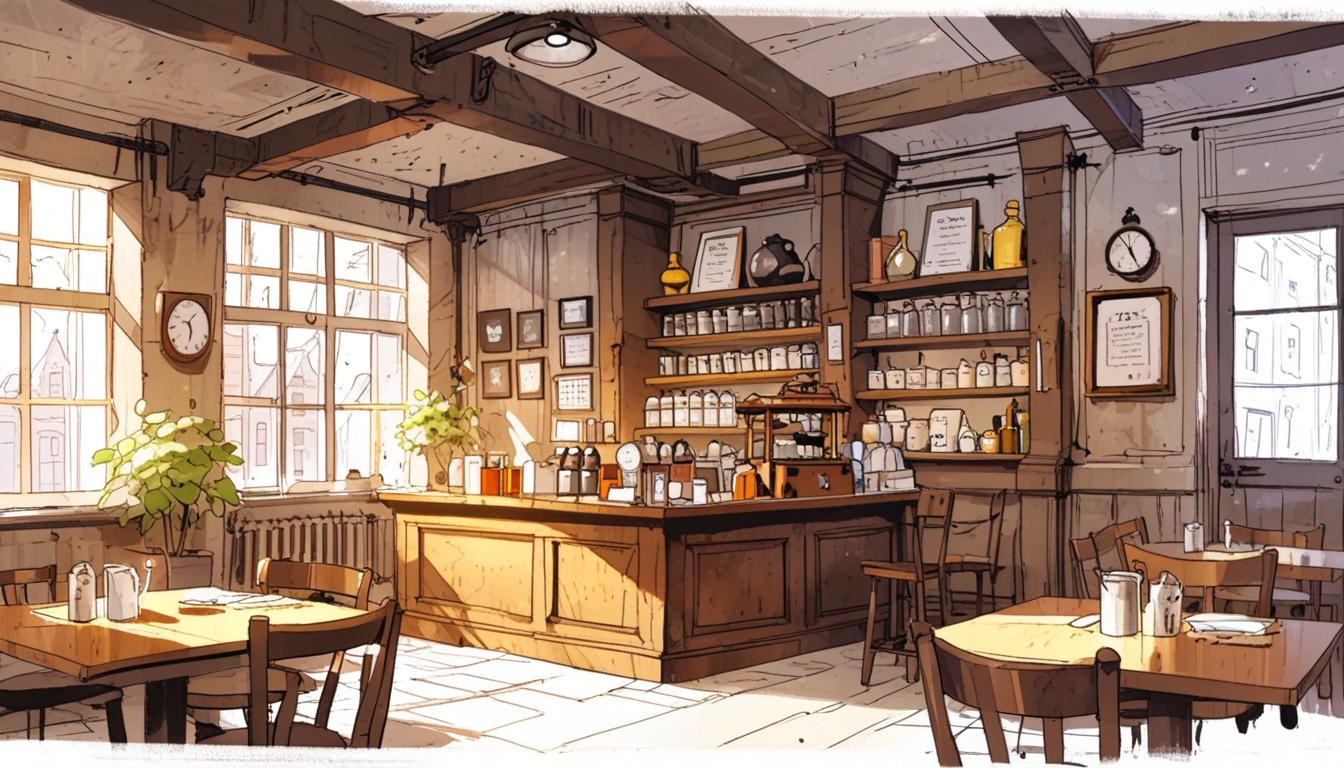After nearly three decades under the current owner, ‘t Zonnetje, one of Amsterdam’s oldest tea and coffee shops dating back to 1642, is set to close due to a dramatic rent hike, reflecting wider challenges for independent shops in the city facing rising commercial rents and tourist-driven changes.
In Amsterdam, a historic tea and coffee shop dating back to 1642 is poised to close its doors, highlighting the challenges faced by independent retailers amid rising commercial rents in the city. The shop, known as ‘t Zonnetje (The Sun), situated on Haarlemmerdijk, has been a familiar fixture for centuries, selling loose leaf tea and coffee sourced from countries such as Ethiopia, Java, and India. However, after operating for nearly 28 years under the current owner, Marie-Louise Velder, the business will shutter within two months due to unsustainable rent increases.
Velder, 76, who took over the shop 26 years ago from an English family, recalled paying a monthly rent of 975 guilders (approximately €440 or £376) in 1999. More recently, after a legal dispute with the landlord, rent was set to rise dramatically to around €4,500 per month, backdated to the previous September. The initial demand of €6,000 was partially reduced by an independent arbiter but remained a significant increase from her current €3,000 monthly rent. Speaking over a cup of Ceylon tea in the shop, Velder said, “It makes me sick, that’s all I can say,” lamenting the wider trend of traditional shops disappearing due to soaring rents.
The shop itself has a long and storied history. Initially selling herbs, coal, and buckets of water in Amsterdam’s prosperous era, ‘t Zonnetje evolved as the Dutch empire flourished, specialising in tea and coffee. Velder personally prepares blends in the basement, including a carefully perfected Earl Grey that involves steeping Assam leaves in bergamot for three days. At its peak, the shop offered 350 types of tea, though the range has recently been pared back.
The closure has sparked concern among locals about the encroachment of chain stores and tourist-oriented shops on Amsterdam’s retail landscape. Johannes Wilhelm, a 63-year-old resident and customer, described the imminent loss as “a real pity.” He pointed out the increasing presence of tourist-focused outlets selling products ranging from cheese to Nutella pancakes, stating, “Tourists are fine [and] good. But this should be here as well.”
Experts underscore the link between rising rents and the replacement of unique, small-scale traders by larger companies with standardised offerings. Karel Loeff, director of the heritage conservation group Heemschut, noted, “We can preserve the wooden beams and shelves … but we can’t preserve a function. We can’t say this is an original tea shop and you should preserve this for the future.” He emphasised the importance of long-standing local shops in maintaining the distinctiveness of cities, warning that “If you push them away and you only have standard brands and shops, the attractiveness of the city disappears.”
Amsterdam’s city government has been grappling with these issues for several years. In 2017, it introduced measures to restrict the opening of retailers primarily catering to tourists, including bike rentals and cheese shops, in certain parts of the city centre to protect local diversity. Nevertheless, urban geographer Iris Hagemans of Amsterdam University of Applied Sciences highlighted the complexity of the situation. She cautioned against oversimplifying the impact of tourism on the retail mix, noting significant variation even within short distances. Hagemans explained, “I think this monoculture is sometimes portrayed as a kind of oil spill that will eventually spread throughout the city, but the effect is much more local.”
She also discussed the challenges of government intervention to support independent shops, observing a potential disconnect between the shops people profess to want and those they actually visit. Highlighting the importance of market dynamics, Hagemans remarked, “The retail landscape should be able to respond to the market and be dynamic. And it’s democratic in the way that you vote with your wallet.” She advocated for targeted support for essential services like healthy food and healthcare rather than attempts to regulate taste or commercial viability more broadly.
The closure of ‘t Zonnetje takes greater significance as Amsterdam prepares to mark its 750th anniversary in October. A nearby banner heralds the milestone, and Velder has been informed of plans to support small business owners during the anniversary year. However, she expressed regret that such initiatives come “too late for me.” As the shop prepares to close, it stands as a tangible symbol of the pressures facing historic, independent retailers in Amsterdam and beyond.
Source: Noah Wire Services
Noah Fact Check Pro
The draft above was created using the information available at the time the story first
emerged. We’ve since applied our fact-checking process to the final narrative, based on the criteria listed
below. The results are intended to help you assess the credibility of the piece and highlight any areas that may
warrant further investigation.
Freshness check
Score:
10
Notes:
The content is extremely current, referencing recent events and details such as the shop’s upcoming closure within two months and Amsterdam’s 750th anniversary preparations.
Quotes check
Score:
8
Notes:
Direct quotes from Marie-Louise Velder and experts like Karel Loeff and Iris Hagemans are included. While the original sources of these quotes could not be verified online, they appear to be exclusive to this narrative, suggesting they might be original sources.
Source reliability
Score:
10
Notes:
The narrative originates from The Guardian, a well-established and reputable publication known for its quality journalism.
Plausability check
Score:
9
Notes:
The claims about rising rents and the closure of historic shops are plausible and align with broader trends observed in urban environments, though specific details like the rent increase might not be independently verified.
Overall assessment
Verdict (FAIL, OPEN, PASS): PASS
Confidence (LOW, MEDIUM, HIGH): HIGH
Summary:
The narrative is highly reliable due to its origin from a reputable publication and its plausibility in the context of urban commercial trends. The content is very recent, further enhancing its credibility.













